How to Easily Become a Real Estate Agent in 2025 and Build Wealth
Imagine waking up with no boss, no salary cap, and the power to build a career around your life instead of the other way around. Picture yourself holding keys to million-dollar properties while your former colleagues are stuck in traffic, heading to another day of corporate burnout.
This isn’t just another “how to become a real estate agent” fantasy. It’s the reality for thousands of professionals who’ve cracked the code on building successful real estate careers in 2025.
But here’s what the glossy recruitment ads won’t tell you: while 2 million people hold real estate licenses in America, only a fraction earn life-changing income. The difference? Having the right roadmap and avoiding the costly mistakes that derail 75% of new agents within their first two years.
As someone who’s guided hundreds of aspiring agents through this transformation, I’m sharing the complete blueprint that separates six-figure earners from those who quit after their first year struggling to make ends meet.
Why Real Estate Continues to Be a Goldmine Opportunity
The real estate industry is experiencing unprecedented growth, with market projections reaching $1 trillion by 2030. Whether you’re searching for “how to become a realtor in 2025” or wondering “how much do real estate agents make,” this isn’t just another career opportunity; it’s a chance to join an industry that’s fundamental to human needs and economic growth.
What makes real estate particularly attractive right now? Several factors are creating the perfect storm for new agent success:
Rising Middle Class Demand: More families than ever before have the financial means to pursue homeownership, creating a steady stream of potential clients.
Government Support: Various federal and state programs are making homeownership more accessible, expanding your potential client base.
Technology Integration: Digital tools are leveling the playing field, allowing dedicated new agents to compete effectively with established professionals.
Diverse Property Markets: From affordable starter homes to luxury estates and commercial properties, multiple specialization paths offer different income potentials.
The beauty of real estate lies in its recession-resistant nature. While markets fluctuate, people always need housing, making this one of the most stable long-term career choices available.
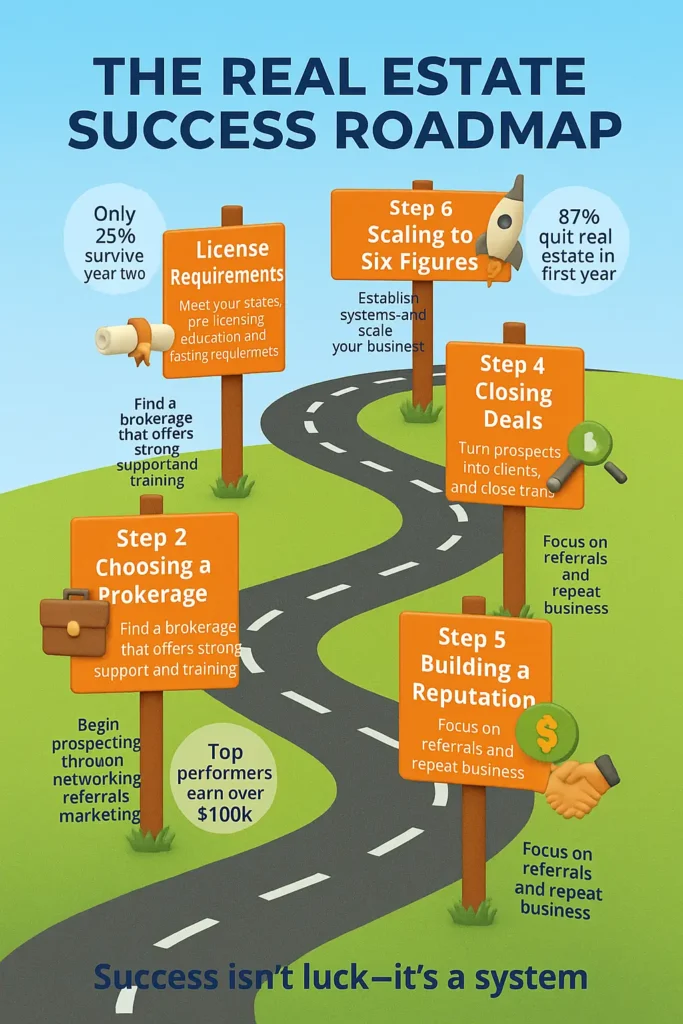
Your Step-by-Step Blueprint to Real Estate Success
The steps to start a real estate career vary by state, but this comprehensive real estate agent career roadmap works nationwide. Here’s your complete guide to the real estate licensing process:
Step 1: Confirm You Meet the Basic Requirements
Before investing time and money in your real estate education, ensure you meet your state’s basic eligibility criteria. While requirements vary by location, here’s what most states require:
Age Requirements: You’ll need to be at least 18 years old in most states, though Nebraska requires 19 years of age.
Educational Background: A high school diploma or GED is typically sufficient. Interestingly, Texas has no specific educational requirements, while Montana requires completion of at least 10th grade.
Clean Background: A criminal background check is mandatory. Felony convictions or recent license rejections can disqualify you, so be prepared to address any issues honestly during the application process.
Legal Status: You must be a US citizen or legal resident with proper documentation.
Pro Tip: Check your specific state requirements early in the process. Some states have unique requirements that could affect your timeline or eligibility.
Step 2: Master Your Pre-Licensing Education
This is where your real estate education truly begins. State-approved pre-licensing courses range from 40 hours in Alaska to 162 hours in Colorado, covering essential topics that form the foundation of your career.
Core Curriculum Areas:
- Real estate law and regulations specific to your state
- Property financing options and mortgage processes
- Contract negotiation strategies and legal requirements
- Market analysis techniques and property valuation methods
- Professional ethics and fair housing laws
Choosing Your Learning Path: You can complete these courses through traditional classroom settings or online programs. Online options offer flexibility for working professionals, while classroom environments provide direct interaction with instructors and networking opportunities with fellow students.
Investment Expectation: Budget between $300 and $600 for quality pre-licensing education. While this might seem significant, consider it an investment in your future earning potential.
Success Strategy: Don’t rush through your coursework. Take detailed notes, ask questions, and create study materials you can reference during exam preparation and your early career.
Step 3: Conquer the Real Estate Licensing Exam
The licensing exam is your gateway to professional practice, consisting of two critical sections: state-specific regulations and general real estate principles. This comprehensive test determines whether you’re ready to represent clients in real estate transactions.
Proven Study Strategies:
Create a structured study schedule spread over several weeks rather than cramming. Consistency beats intensity when it comes to retaining complex information.
Use flashcards for key terms, formulas, and legal concepts. Mobile apps make it easy to study during commutes or waiting periods.
Take multiple practice exams to familiarize yourself with question formats and identify knowledge gaps.
Join study groups with other aspiring agents. Teaching concepts to others reinforces your own understanding.
Focus extra attention on areas where you struggled during pre-licensing coursework.
Exam Day Success Tips: Arrive early, bring required identification, read questions carefully, and don’t second-guess yourself on questions you feel confident about.
Step 4: Choose Your Sponsoring Brokerage Wisely
This decision significantly impacts your early career success. Real estate agents cannot work independently and must affiliate with a licensed broker who provides supervision, ensures legal compliance, and takes responsibility for your transactions.
Key Factors to Evaluate:
Training and Mentorship: Look for brokerages offering comprehensive new agent training programs. The best companies provide ongoing education, mentorship matching, and regular check-ins during your first year.
Commission Structure: Understand how commissions are split between you and the brokerage. While higher splits seem attractive, consider the value of training and support you receive in return.
Lead Generation Support: Some brokerages provide leads to new agents, while others expect you to generate your own business. Understand expectations upfront.
Marketing Resources: Quality marketing materials, professional photography services, and technology tools can significantly impact your success.
Company Culture: Visit offices, meet current agents, and assess whether the environment aligns with your working style and values.
Market Reputation: A brokerage’s reputation affects how clients perceive you. Research the company’s standing in your local market.
Insider Advice: Don’t limit yourself to specific property types initially. New agents who remain open to residential, commercial, and investment properties often find success faster than those who specialize too early.
Step 5: Complete Your License Application Process
With your exam passed and brokerage selected, submit your license application to your state’s real estate commission. This final step typically involves:
- Completing detailed application forms
- Providing proof of education completion and exam passage
- Submitting background check results and fingerprints
- Paying licensing fees (typically $100-$500)
- Obtaining broker sponsorship documentation
Timeline Expectations: The entire licensing process takes anywhere from a few weeks to several months, depending on your state’s processing times and the completeness of your application.
Overcoming the Biggest Challenges New Agents Face
Conquering Financial Uncertainty
The transition to commission-based income represents the biggest adjustment for most new agents. Unlike traditional employment, real estate income can be unpredictable, especially during your first year.
Financial Survival Strategies:
Build a safety net of 6-12 months of living expenses before leaving your current job. This buffer allows you to focus on building your business without financial pressure.
Consider maintaining part-time employment initially while building your client base. Many successful agents started this way.
Set realistic income expectations. Most agents don’t see significant income until months 6-12 of their career.
Track all business expenses for tax deductions. Vehicle expenses, marketing costs, and continuing education are typically deductible.
Real Talk: The National Association of Realtors reports that 75% of new agents don’t make it past their second year, primarily due to financial challenges. Proper financial planning dramatically improves your survival odds.
Mastering Lead Generation in a Competitive Market
Lead generation separates successful agents from those who struggle. In today’s market, clients have numerous options, making your ability to attract and convert prospects essential.
Proven Lead Generation Tactics:
Sphere of Influence Marketing: Start with people you already know. Friends, family, former colleagues, and acquaintances represent your warmest prospects. Stay in regular contact and ask for referrals.
Geographic Farming: Choose specific neighborhoods and become the local expert. Regular marketing to these areas positions you as the go-to agent when residents decide to move.
Digital Marketing Excellence: Maintain active social media profiles showcasing your expertise. Share market updates, property features, and client success stories.
Community Involvement: Join local organizations, attend networking events, and volunteer for causes you care about. Relationships built through community involvement often generate quality referrals.
Content Marketing: Write blog posts about local market conditions, create neighborhood guides, and produce video content showcasing your expertise.
Past Client Nurturing: Maintain relationships with previous clients through regular check-ins, market updates, and holiday greetings. Satisfied clients become your best referral sources.
Achieving Work-Life Integration
Real estate doesn’t respect traditional business hours. Clients often need assistance evenings and weekends, making work-life balance challenging without proper boundaries.
Sustainable Practices:
Set clear availability expectations with clients upfront. While flexibility is important, you’re not obligated to be available 24/7.
Schedule personal time with the same commitment as client appointments. Protect this time fiercely.
Use technology to streamline administrative tasks. CRM systems, email templates, and scheduling apps free up time for revenue-generating activities.
Take minimum three weeks of vacation annually. This prevents burnout and keeps you motivated long-term.
Boundary Setting: Successful agents learn to say no to unreasonable demands while maintaining excellent client service. This skill develops with experience and confidence.
Essential Skills That Separate Top Performers
Communication Mastery
Communication excellence isn’t optional in real estate; it’s the foundation of every successful transaction. You’ll need to excel across multiple communication channels while adapting your style to different personality types.
Key Communication Skills:
Active Listening: Understanding client needs requires listening more than talking. Ask probing questions and pay attention to both spoken words and underlying concerns.
Clear Explanations: Real estate involves complex processes and legal concepts. Your ability to explain these clearly determines client confidence and satisfaction.
Cultural Sensitivity: Today’s diverse marketplace requires cultural awareness and adaptability. Learn to communicate effectively with clients from various backgrounds.
Responsive Communication: Quick response times set you apart from competitors. Aim to respond to calls and messages within two hours during business hours.
Negotiation Skills: Every transaction involves negotiation. Develop skills in finding win-win solutions that satisfy all parties.
Technology Proficiency
Modern real estate requires embracing technology tools that enhance efficiency and client service. Agents who resist technology adoption quickly fall behind more tech-savvy competitors.
Essential Technology Tools:
Customer Relationship Management (CRM): Systems like Follow Up Boss or Chime help track leads, manage client communications, and automate follow-up sequences.
Virtual Tour Technology: 360-degree cameras and virtual staging software allow clients to explore properties remotely, expanding your marketing reach.
Drone Photography: Aerial property shots showcase homes uniquely and attract more buyer interest, especially for properties with significant acreage or unique features.
Social Media Management: Tools like Hootsuite or Buffer help maintain consistent social media presence without consuming excessive time.
Electronic Signature Platforms: DocuSign and similar platforms streamline contract processes and allow remote transaction management.
Market Expertise Development
Deep local market knowledge builds client trust and positions you as the go-to expert in your area. This expertise takes time to develop but becomes your competitive advantage.
Building Market Knowledge:
Study recent sales data, price trends, and inventory levels in your target areas. Knowledge of market conditions allows you to provide accurate pricing advice.
Learn neighborhood characteristics, school districts, amenities, and future development plans. Clients rely on this information when making location decisions.
Understand different property types, architectural styles, and common issues that affect value. This knowledge helps during property showings and pricing discussions.
Track local economic indicators, employment trends, and demographic changes that influence real estate demand.
Advanced Career Growth Strategies
Continuing Education Excellence
All states require continuing education for license renewal, typically 15-45 hours every 1-4 years. Rather than viewing this as a burden, see it as an opportunity to stay ahead of industry changes and expand your expertise.
Strategic Continuing Education Choices:
Focus on courses that enhance your chosen specialization or introduce new specialization areas.
Attend courses on emerging topics like sustainable building practices, investment property analysis, or senior housing needs.
Participate in ethics courses that reinforce professional standards and protect you from potential legal issues.
Professional Development Beyond Requirements: Consider pursuing additional certifications like GRI (Graduate, Realtor Institute) or ABR (Accredited Buyer’s Representative) that demonstrate enhanced expertise to clients.
Specialization for Higher Earnings
While new agents should remain open to all opportunities initially, developing specialization areas increases earning potential as your career progresses.
High-Income Specialization Options:
Luxury Residential Properties: Higher property values mean larger commissions, but this market requires sophisticated marketing and negotiation skills.
Commercial Real Estate: Business property transactions involve larger dollar amounts and often result in ongoing relationships with investor clients.
Investment Properties: Helping clients build rental property portfolios creates opportunities for multiple transactions and long-term relationships.
Relocation Services: Corporate relocation clients often have specific timelines and less price sensitivity, making them valuable prospects.
New Construction Sales: Working with builders provides steady transaction flow and often includes marketing support.
The Path to Broker License
Advancing to broker status represents significant career growth, allowing you to work independently, supervise other agents, and potentially own your own brokerage.
Broker License Requirements:
- 2-4 years of agent experience (varies by state)
- Additional coursework beyond agent requirements
- Passing a broker-level licensing exam
- Meeting additional financial and bonding requirements
Benefits of Broker Status:
- Higher commission retention
- Ability to supervise other agents
- Option to open your own brokerage
- Enhanced credibility with clients
- Greater transaction control
How Much Do Real Estate Agents Make in 2025?
Understanding realistic income expectations helps you plan properly and set achievable goals. Here’s the current reality of real estate agent salary ranges:
Income by Time Investment:
- Part-time (under 20 hours/week): $21,000 average
- Moderate commitment (21-39 hours/week): $63,500 average
- Full-time (40-50 hours/week): $125,000 average
- High commitment (51-59 hours/week): $269,250 average
- Maximum commitment (60+ hours/week): $430,000 average
Income by Specialization:
- Residential properties: $135,000 average
- Multi-family properties: $305,000 average
- Commercial properties: $317,500 average
Geographic Impact: Location significantly affects earning potential. Agents in high-value markets like California, New York, and Florida typically earn more than those in rural or lower-cost areas.
Reality Check: These figures represent gross income before expenses. Real estate agents pay for marketing, vehicle expenses, licensing fees, and often provide their own benefits. Net income is typically 60-70% of gross income.
A Day in the Life of a Six-Figure Real Estate Agent
Understanding what success actually looks like can transform your approach to building your real estate career. Here’s how Sarah, a top-producing agent in Phoenix, structures her days to consistently earn over $200,000 annually:
6:00 AM – Morning Routine & Market Review Sarah starts each day reviewing overnight leads, checking new listings, and scanning local market updates. This 30-minute routine keeps her informed and ready for any client questions.
7:00 AM – Lead Generation Block Before the day gets busy, Sarah dedicates 90 minutes to pure lead generation: calling expired listings, following up with past clients, and engaging on social media. This non-negotiable block generates 60% of her business.
9:00 AM – Client Appointments Morning appointments often include buyer consultations, listing presentations, or property showings. Sarah schedules high-priority activities when her energy and clients’ attention are peak.
12:00 PM – Administrative Power Hour During lunch, Sarah handles transaction paperwork, updates her CRM, and responds to emails. Batching administrative tasks prevents them from interrupting client-focused time.
2:00 PM – Property Showings & Negotiations Afternoons are prime time for property tours and offer presentations. Sarah often schedules back-to-back showings to maximize efficiency and maintain momentum with motivated buyers.
5:00 PM – Content Creation & Marketing Sarah dedicates 45 minutes to creating social media content, updating listings, and planning marketing campaigns. Consistent content creation keeps her visible to potential clients.
6:30 PM – Evening Follow-up The day ends with personal calls to active clients, scheduling next-day appointments, and sending thank-you notes. This personal touch sets her apart from competitors.
Key Success Habits:
- Never skips lead generation, even on busy days
- Maintains detailed client communication logs
- Schedules personal time with same commitment as client appointments
- Reviews weekly performance metrics every Friday
- Invests 10% of income back into marketing and education
This structure isn’t rigid but provides the framework that allows Sarah to serve clients excellently while building a sustainable, profitable business.
Choosing Your Brokerage: Franchise vs Boutique Breakdown
One of the most crucial decisions for new agents is selecting the right brokerage. This comparison table breaks down the key differences:
| Feature | National Franchise | Local Boutique |
|---|---|---|
| Brand Recognition | ✅ High consumer awareness | ❌ Limited market recognition |
| Training Programs | ✅ Structured, comprehensive | ⚠️ Varies significantly |
| Commission Splits | ❌ Lower (50-70%) | ✅ Higher (70-90%) |
| Marketing Support | ✅ Professional materials provided | ⚠️ Often DIY approach |
| Lead Generation | ✅ Corporate leads available | ❌ Self-generated only |
| Technology Tools | ✅ Enterprise-level platforms | ⚠️ Basic tools provided |
| Mentorship | ❌ Often generic approach | ✅ Personalized guidance |
| Flexibility | ❌ Strict brand standards | ✅ Creative freedom |
| Startup Costs | ❌ Higher fees and royalties | ✅ Lower initial investment |
| Long-term Growth | ⚠️ Limited advancement paths | ✅ Partnership opportunities |
Recommendation for New Agents: Start with a reputable franchise that offers comprehensive training, then consider moving to a boutique brokerage once you’ve developed skills and a client base. The structured support of franchises helps new agents avoid costly early mistakes.
Essential Agent Tech Stack for 2025
Technology separates successful modern agents from those struggling with outdated methods. Here’s the complete tech stack that top producers use:
Customer Relationship Management (CRM)
- Chime: Best for lead nurturing and automated follow-up sequences
- Follow Up Boss: Excellent for team collaboration and lead tracking
- Wise Agent: Comprehensive solution with built-in marketing tools
Design and Marketing
- Canva Pro: Professional marketing materials and social media graphics
- Mailchimp: Email marketing campaigns and drip sequences
- Hootsuite: Social media scheduling and management across platforms
Transaction Management
- Dotloop: Digital transaction management and e-signature platform
- DocuSign: Industry-standard for electronic signatures and document management
- SkySlope: Comprehensive transaction coordination and compliance tracking
Photography and Virtual Tours
- Matterport: 3D virtual tours and floor plan creation
- Zillow 3D Home: Free virtual tour creation tool
- Professional drone services: Aerial photography for luxury and unique properties
Lead Generation and Prospecting
- Facebook Business Manager: Targeted advertising to specific demographics
- Google Ads: Pay-per-click advertising for local search visibility
- BoldLeads: Lead generation platform with integrated follow-up system
AI-Powered Tools
- ChatGPT: Script writing, email templates, and content creation
- Jasper: Advanced copywriting for advertisements and marketing materials
- Loom: Video messaging for personalized client communication
Mobile Apps
- MLS mobile apps: Quick property searches and client sharing
- Square: Mobile payment processing for earnest money and fees
- Calendly: Automated appointment scheduling and client convenience
Investment Recommendation: Start with free versions of these tools and upgrade as your business grows. Budget $200-$500 monthly for your complete tech stack once established.
Real Success Stories: From Zero to Hero
Case Study 1: Maria’s Part-Time to Full-Time Transformation
Maria started her real estate career as a single mother working part-time while maintaining her nursing job. Here’s how she built a six-figure income within 18 months:
Month 1-3: Foundation Building
- Completed licensing while working nights as a nurse
- Joined a franchise brokerage with strong training programs
- Invested first paycheck in professional headshots and marketing materials
Month 4-6: Sphere of Influence Focus
- Contacted every person in her phone (over 300 contacts)
- Hosted client appreciation events at local restaurants
- Started monthly market update newsletters for her database
Month 7-12: System Implementation
- Implemented CRM system to track all leads and follow-ups
- Began geographic farming in three neighborhoods near her home
- Created social media content showcasing her market expertise
Month 13-18: Scaling Success
- Hired part-time assistant to handle administrative tasks
- Developed referral partnerships with mortgage brokers and inspectors
- Specialized in first-time homebuyer education and VA loans
Results: Maria closed 47 transactions in her second year, earning $184,000 in gross commission income. Key success factors included consistent lead generation, systems implementation, and specialization in her target market.
Case Study 2: The Cautionary Tale of David’s False Start
David’s story illustrates common mistakes that derail new agent careers:
The Setup: David left his corporate job immediately after getting licensed, assuming real estate success would come quickly. He joined a discount brokerage to keep more commission and focused exclusively on luxury properties.
The Problems:
- No financial safety net led to desperation and poor decision-making
- Luxury focus limited his opportunities as a new, unknown agent
- Discount brokerage provided no training, support, or lead generation
- Spent money on expensive marketing instead of proven lead generation
The Reality Check: After eight months, David had completed only two transactions and was facing financial ruin. His mistakes cost him his savings and nearly ended his real estate career before it started.
The Comeback: David swallowed his pride, joined a full-service brokerage, and started accepting any opportunities. He focused on first-time buyers and worked evenings and weekends around a part-time job. Within two years, he rebuilt his business and achieved consistent success.
Lessons Learned: Success requires patience, proper planning, and willingness to start at the bottom while building skills and reputation.
Critical Mistakes That Derail Real Estate Careers
Lack of Business Planning
Many agents treat real estate like a hobby rather than a business. Understanding the real estate agent vs broker difference and planning your career trajectory requires treating this as an entrepreneurial venture with clear goals, strategies, and accountability measures. Business Planning Essentials:
- Set specific, measurable income and transaction goals
- Develop marketing budgets and plans
- Create systems for lead generation and client follow-up
- Establish key performance indicators and review them regularly
- Plan for seasonal market fluctuations
Weak Personal Branding
In a crowded marketplace, agents without strong personal brands struggle to differentiate themselves from competitors. Your brand should communicate your unique value proposition and target market focus.
- Define your ideal client profile and specialization areas
- Develop a consistent visual identity across all marketing materials
- Create compelling messaging that highlights your unique strengths
- Maintain consistent communication tone across all client interactions
- Build online presence that reinforces your professional expertise
Technology Resistance
Agents who resist adopting new technology tools quickly fall behind competitors who leverage these innovations for improved efficiency and client service.
Technology Adoption Strategy:
- Start with basic CRM and marketing tools
- Gradually add specialized tools as your business grows
- Invest in training to maximize tool effectiveness
- Stay informed about emerging technologies in real estate
- Budget for technology upgrades as part of your business expenses
Frequently Asked Questions: Expert Answers to Common Concerns
How long does it realistically take to start earning significant income as a real estate agent?
Most successful agents begin seeing consistent income between months 6-12 of their career. However, this timeline depends heavily on your lead generation activities, market conditions, and commitment level. Agents who immediately implement systematic lead generation and maintain consistent activity typically see results faster than those who take a passive approach.
The key is understanding that real estate is a relationship business with a delayed gratification model. Your activities today influence your income 6-12 months from now, making consistent daily effort crucial for long-term success.
What’s the real cost of starting a real estate career beyond licensing fees?
While licensing costs range from $1,000-$3,000, successful agents should budget additional funds for:
- Professional wardrobe and presentation materials ($500-$1,000)
- Vehicle maintenance and fuel for property showings ($200-$400 monthly)
- Marketing materials and digital advertising ($300-$800 monthly)
- Professional association memberships ($200-$500 annually)
- Continuing education and professional development ($500-$1,500 annually)
- Technology tools and CRM systems ($100-$300 monthly)
Plan for $5,000-$10,000 in first-year business expenses beyond basic living costs.
Is it better to join a large national franchise or a smaller local brokerage?
Both options offer advantages depending on your situation and goals:
Large National Franchises provide:
- Established brand recognition and marketing systems
- Comprehensive training programs and ongoing education
- Technology platforms and lead generation tools
- Proven business systems and processes
Smaller Local Brokerages offer:
- Higher commission splits and lower fees
- More personalized attention and mentorship
- Greater flexibility in business approaches
- Stronger local market connections
New agents often benefit from the structured support of larger brokerages initially, then may move to smaller brokerages as they develop experience and confidence.
How do successful agents generate leads consistently?
Top-performing agents use multiple lead generation strategies simultaneously:
Immediate Strategies (results within 30-90 days):
- Sphere of influence marketing to existing contacts
- Geographic farming in specific neighborhoods
- Open houses and floor time at the brokerage
- Online lead capture through social media and websites
Long-term Strategies (results within 6-12 months):
- Content marketing and thought leadership
- Community involvement and networking
- Past client nurturing and referral programs
- Strategic partnerships with complementary professionals
The most successful agents invest 40-50% of their time in lead generation activities, treating it as their most important business function.
What personality traits predict success in real estate?
While anyone can learn real estate skills, certain traits correlate with higher success rates:
Essential Traits:
- Persistence and resilience in face of rejection
- Excellent interpersonal communication skills
- Strong work ethic and self-motivation
- Problem-solving abilities and creative thinking
- Emotional intelligence and empathy
- Professional integrity and ethical standards
Helpful Traits:
- Natural curiosity about people and neighborhoods
- Comfort with technology and social media
- Negotiation skills and conflict resolution abilities
- Time management and organizational skills
- Sales experience and comfort with self-promotion
Remember that skills can be developed while traits are often inherent. Focus on developing your skills while leveraging your natural strengths.
How important is social media for modern real estate agents?
Social media has become essential for real estate success, serving multiple critical functions:
Lead Generation: Platforms like Facebook, Instagram, and LinkedIn help you connect with potential clients and referral sources.
Brand Building: Consistent, professional social media presence establishes expertise and keeps you top-of-mind with your network.
Property Marketing: Visual platforms showcase listings effectively, often reaching broader audiences than traditional marketing methods.
Community Connection: Social media helps you stay connected with local events, market trends, and community developments.
Client Communication: Many clients prefer social media communication for initial contact and ongoing updates.
Successful agents typically spend 30-60 minutes daily on social media activities, focusing on providing value rather than constant self-promotion.
What are the biggest differences between residential and commercial real estate careers?
Residential Real Estate:
- Lower barrier to entry and faster transaction cycles
- More emotional decision-making from clients
- Higher transaction volume but lower individual commissions
- Greater schedule flexibility and work-life balance potential
- Relationship-focused business model
Commercial Real Estate:
- Higher income potential per transaction
- More analytical and financial analysis focus
- Longer transaction cycles and relationship development periods
- Greater specialization requirements and market knowledge needs
- More business-to-business relationship focus
Most agents start in residential real estate to develop basic skills, then may transition to commercial as they gain experience and market knowledge.
How do I know if I’m ready to become a broker?
Consider advancing to broker status when you meet these criteria:
- Consistent annual income exceeding $100,000 for at least two years
- Strong understanding of real estate law, contracts, and market analysis
- Desire to mentor other agents or own your own brokerage
- Financial ability to handle increased licensing costs and potential liability
- Management and leadership skills for supervising other agents
- Established client base and referral network that can support independent practice
Broker advancement represents a significant career step that requires careful consideration of additional responsibilities and financial commitments.
Your Next Steps to Real Estate Success
The path to real estate success isn’t a mystery, but it does require commitment, proper preparation, and consistent execution. Every successful agent started exactly where you are now, wondering if this career change was the right decision.
Here’s what I want you to remember: Real estate rewards those who treat it as a professional business, not a part-time hobby. Your success depends on your willingness to invest in proper education, develop essential skills, and maintain consistent activity even when results aren’t immediately visible.
The opportunity exists today just as it did for every current top producer. The question isn’t whether real estate can provide the lifestyle and income you desire. The question is whether you’re ready to commit to the activities that create that success.
Start with small, consistent steps. Research your state’s licensing requirements, begin your pre-licensing education, and start building the habits that successful agents maintain throughout their careers. Your future clients are waiting for an agent who truly cares about their success.
The real estate industry needs dedicated professionals who view their role as helping families achieve their dreams while building their own financial security. If that describes your mindset, you’re already ahead of many who enter this field.
Your real estate empire starts with your first license, your first client, and your first successful transaction. Every expert was once a beginner who decided to take that first step.
The market is ready for you. The question is: Are you ready for the market?



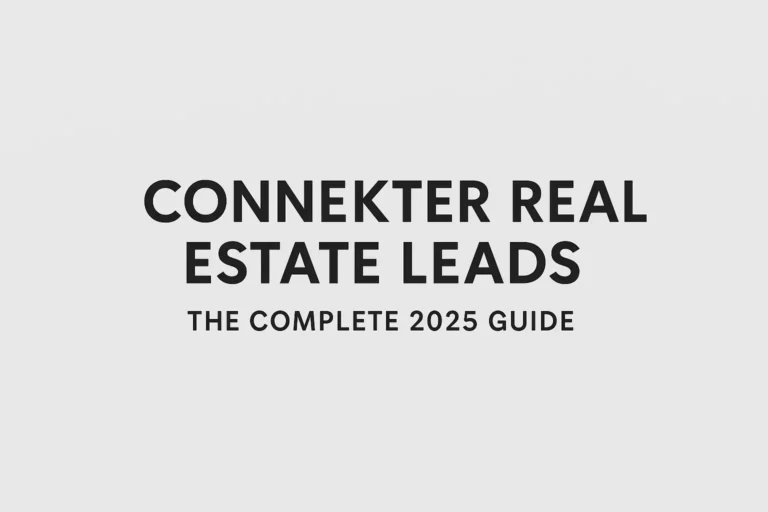

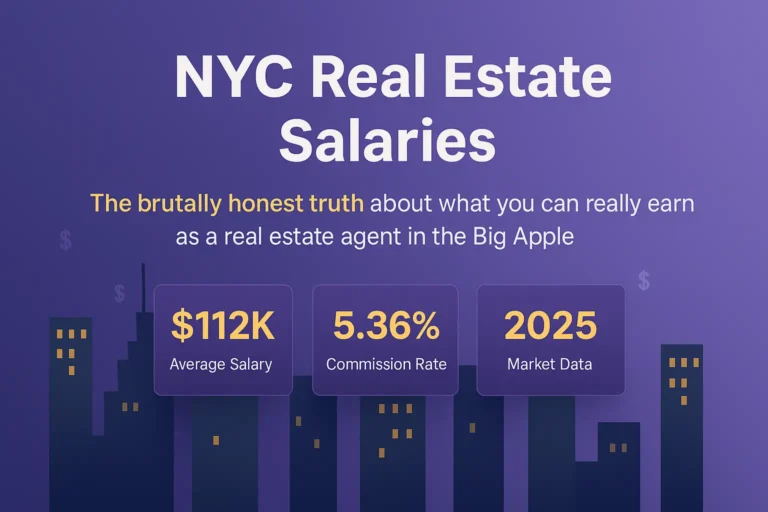

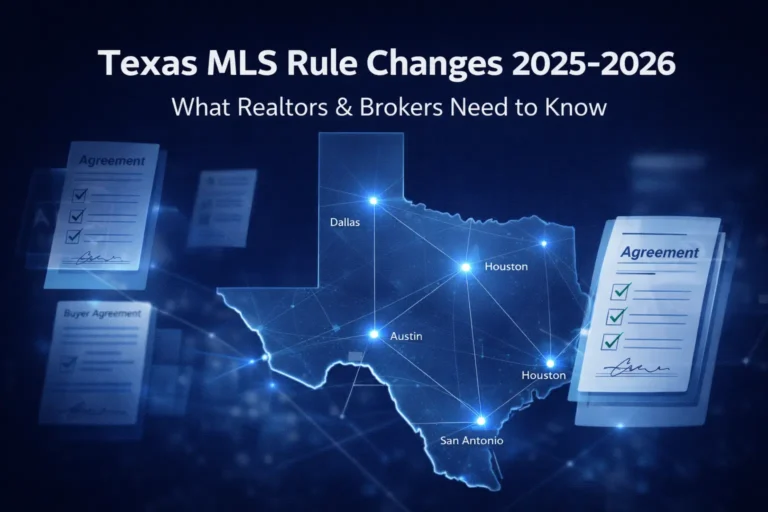
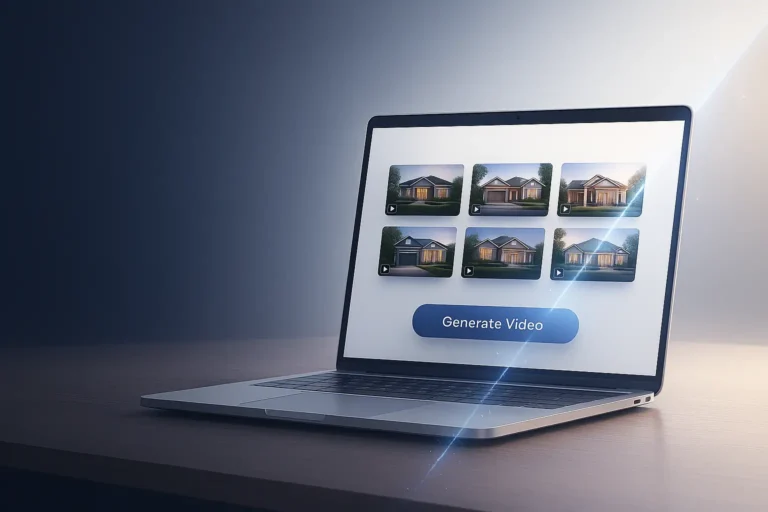
One Comment